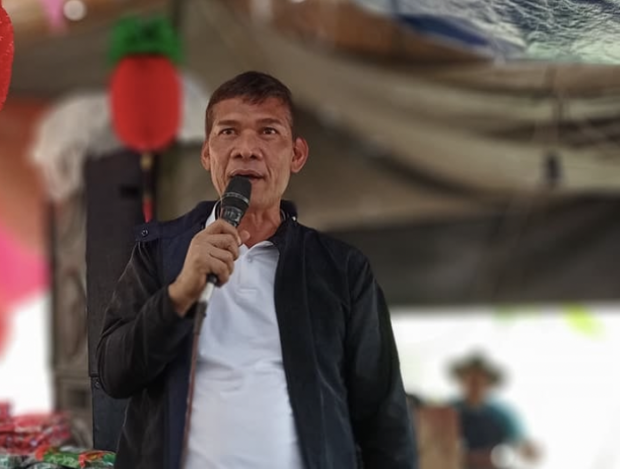De Guzman favors special session on rising oil prices

Presidential candidate Leody de Guzman. (PHOTO FROM HIS FACEBOOOK PAGE)
MANILA, Philippines — Presidential candidate Leody de Guzman is in favor of Congress conducting a special session to address the rising oil prices.
In a statement issued on Tuesday, the labor leader said the economy was already showing signs of stagflation — or a situation in which the inflation and unemployment rates are high as economic growth slows down.
“Use the special session to address the economic downturn by legislating a nationwide increase of workers’ wages, controlling the prices of oil and basic necessities, and other similar measures,” De Guzman said in Filipino.
“In times of crisis, those who should tighten their belts are the big businessmen and the government — not the workers and people who have long been suffering in poverty and despair even when our economy was booming,” he added.
De Guzman also warned against repeating Bayanihan 1 and 2. He said those laws did not alleviate the effects of the COVID-19 pandemic. Instead, they only gave traditional politicians to pander to voters.
“Neither should Malacañang be given full freedom and authority as raise and spend government funds. The only ones who will benefit from this are the banks providing the loans and the politicians allied with the president,” De Guzman said.
The government earlier announced that it was preparing to release P2.5 billion for a subsidy program providing fuel vouchers to qualified members of the public transport sector and P500 million in fuel discounts for farmers and fisherfolk.
On Monday, the National Economic and Development Authority also announced that it would double the subsidies from P2.5 billion to P5 billion and P500 million to P1.1 billion.
Fuel prices are expected to rise further due to the war between Ukraine and Russia, a key crude producer.
RELATED STORIES
Russia’s war in Ukraine: Latest developments
Put PH under Alert Level 1 to revive economy – NEDA
Oil prices at highest since 2014; energy markets ‘seriously rattled’